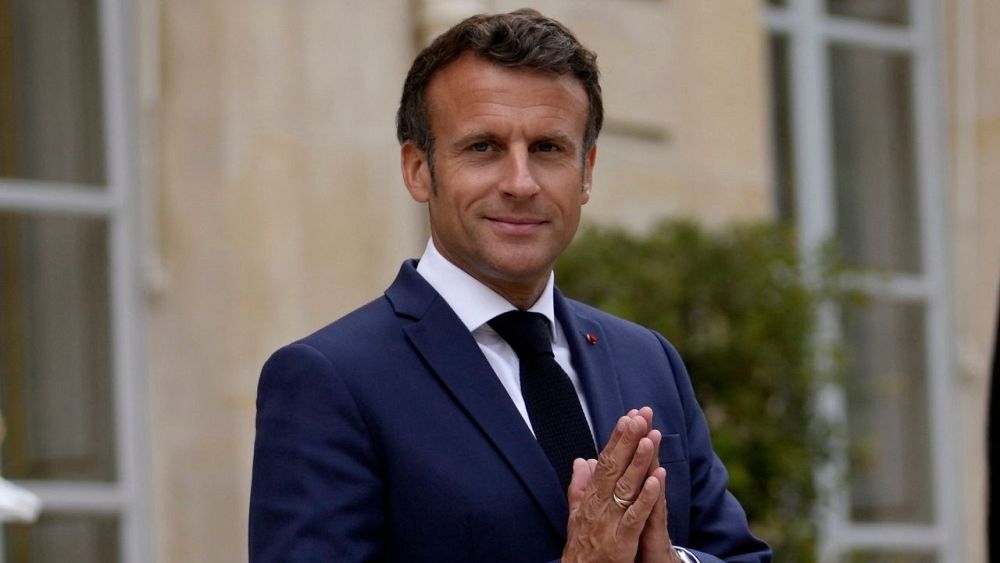[ad_1]
London — It’s a firm principle of Balancing Act’s News Update that we don’t blow our own trumpet. But forgive me for making this week an exception. Manchester University Press published my book Africa 2.0 – Inside a Continent’s Communications Revolution (Russell Southwood) last week.
The book is an ambitious 35-year history of the impact of mobile and internet on Sub-Saharan Africa. It starts with the launch of Miko Rwayitare and Joe Gatt’s Telecel in 1986 in what was then Zaire (now DRC) and comes right up to date with the development of Africa’s digital life and digitally-based start-ups. It covers both the positive (the spread of mobile calling and mobile internet) and the negative (corruption and things like ‘hustle’ culture around start-ups).
It’s written as I’ve always written over the last 22 years: enthusiastic about things that can make a contribution to change but not afraid to call out bad practices or things that have failed. Although it’s a book that contains ideas about why things happened the way they did, it’s very much a set of human stories. I carried out 137 original interviews to ask people why they thought things happened the way they did and to give eyewitness accounts.
Books are hard work to write so why did I do it? The impact of mobile calling and internet on Sub-Saharan Africa is arguably one of the biggest economic and social development stories of the last two decades. And whilst I thoroughly enjoy the weekly ‘smell of the BS and the roar of the crowd’, too much technology writing – and I plead as guilty as the next person – is in the future perfect sense. There is an over urgent sense that something is going to happen ‘real soon now’. And if you work in the industry, I think you’ll find the book helpful in taking a long view of the past before turning towards what the future might hold.
People in tech do not always appreciate that human behavior often changes much more slowly than the rate of new technology development. The reason it’s a human story is because Africans have always defined how they have used technologies and have chosen to use certain things and not others. So for example, although mobile money is undoubtedly one of the continent’s great success stories, Sub-Saharan Africa still has a continuing love affair with cash, which is much more widely used than its digital equivalents.
A great deal has been written about the huge changes bought about by mobile voice but arguably internet will have a profounder impact in the long-term. And we’re only really at the beginning of that part of this double-headed story. So the book looks at the 35-year long arc of change that involves both mobile and internet.
It is a ‘first draft’ history that looks at the forces that drove and opposed these changes. It looks at who has benefitted from them so far and the continuing digital divide in terms of among other things gender, education and literacy and language.
So what’s in the book? The chapter topics are as follows: the rise of mobile calling; bandwidth as the digital economy’s fuel; mobile internet, handsets and apps; mobile money; African digital life; digital’s impact on development; industry corruption, start-ups addressing deep market challenges and doing complexity: making sense of what happened.
To order:
Click on the following link:
As a Balancing Act News Update reader, you are entitled to a 15% discount. Just enter the following code when prompted before checkout: OTH892
In Brief
Cameroon: State-owned fixed and mobile operator CamTel has signed an agreement with the Ministry of Housing and Urban Development to deploy fixed broadband infrastructure and services to new housing projects to promote urban infrastructure development. Journal du Cameroun reports that CamTel has agreed to equip new urban areas, including Olembe and Banga-Bakoko, with telecoms services.
South Africa: South Africans will pay $89M for digital content and services this year through Direct Carrier Billing (DCB). This figure will register a YoY growth rate of 16% over the next four years to reach $159M in 2026, according to the analysis “DCB evolution and trends 2022-2026” carried out by Telecoming, a company specialized since 2008 in monetization technology for sport and entertainment. DCB spending in South Africa represents around 15% of the global market in Africa and the Middle East, placing it as one of the most relevant countries by billing. South Africans currently spend an average of $4.2 per month on digital content. By 2026, this average figure will reach $5.5/month/user. The digital market is largely the one that most stimulates users when it comes to paying for their purchases through the operator. The most popular content paid with DCB is, in this order, video games, videos and music. Specifically, these categories will represent an expense of $86M in 2022. Download document: https://bit.ly/3zjJD9q
Cassava Technologies, Africa’s first integrated tech company of continental scale, announced today that it has secured a US$50 million investment from C5 Capital (C5), a specialist venture capital firm that invests in cyber security, space, and energy security. The investment is part of a broader funding round to accelerate Cassava’s growth. The investment by C5 will contribute to the acceleration of the work that Cassava has undertaken to increase digital connectivity and inclusion on the continent. Cassava will be the go-to market partner in Africa for C5’s cutting edge portfolio companies to deliver best-in-class cyber security, satellite and space technology and clean energy.
South Africa: MTN Group has entered discussions to acquire South African telecoms operator Telkom. The two companies said in separate press releases that ‘discussions are at an early stage and there is no certainty that the transaction will be consummated.’ The deal is likely to face regulatory hurdles, however, as it would effectively create a duopoly in South Africa’s mobile market. MTN is said to have made a bid for Telkom on at least two occasions in the past, dating back at least a decade.
Nigeria: The Nigerian Communications Commission (NCC) has published several draft regulatory documents and invited comments on them from the public and industry stakeholders. The draft legislative documents include: Type Approval Regulations; Guidelines on Short Code Operation in Nigeria; Guidelines on Technical Specifications for the Deployment of Communications Infrastructure; Guidelines on Advertisements and Promotions; and Consumer Code of Practice Regulations. Interested parties have been invited to both make written submissions on the documents by 25 July and participate in public inquiries scheduled for August 2022.
African tech startups raised more funding in the first six months of 2022 than they did across the entirety of 2021, with total investment hitting US$2.275 billion. The seventh edition of Disrupt Africa’s annual African Tech Startups Funding Report, released in January, found 564 startups raised a combined US$2,148,517,500 in 2021, a record for a calendar year. Yet that record has already fallen within the first half of 2022, in which 303 startups banked a whopping US$2.275 billion, meaning 2022 is already the best year ever for investment into the ecosystem. It means the sector is on course to increase total funding raised by 100 per cent year-on-year. Nigeria is leading the way, with 98 companies having raised a combined US$691.8 million since January. This is still short of the US$903,680,000 raised by Nigerian ventures in 2021, though that target is easily surpassable given the current rate of investment.
Nigeria: The Nigerian Communications Commission (NCC) said it has licensed 756 Internet Service Providers (ISPs) as at March 2022, out of which 188 ISPs are active.
Angola: Africell Angola – which launched the country’s third mobile network in April covering the capital Luanda – has disclosed that it will expand its network coverage to the provinces of Kwanza Sul and Benguela as early as August, Menos Fios reports. Plans are in progress to install Africell’s infrastructure in the municipalities of Porto Amboim and Sumbe (Kwanza Sul province), and in Lobito, Benguela city and Baia Farta (Benguela province). These projects are running two months later than originally planned, whilst later this year Africell aims to reach further provinces with its own network, namely Huila, Huambo and Cabinda, before expanding to the rest of the country in stages. The report notes that a lack of availability of roaming access to rival Angolan networks has hindered Africell’s expansion progress.
To support the growth of digital finance services in West Africa, IFC announced a partnership with Orange Bank Africa (OBA) to increase access to finance for agents and merchants operating in the mobile money ecosystem. Under the partnership, IFC will provide advisory services to Orange Bank Africa to help the mobile bank develop and test innovative and scalable digital lending products that meet the specific needs of mobile money agents as well as merchants.
[ad_2]
Source link














